Who says it was finally said fresh vegetables from the garden! Although many people simply prefer to buy their vegetables, others like to grow them themselves in their garden. However, growing your own food can sometimes be a difficult task. Too much sun or, on the contrary, too much rain is not good for crops, as is inadequate soil or small animals and insects that can be found there.
Whether you have a green thumb or not, it is still possible to have a beautiful garden this summer and enjoy fresh vegetables that you have grown yourself. Isn’t that satisfying? Here are some tips to help you have the most beautiful garden in your neighbourhood.
20. Tackle mould with cinnamon
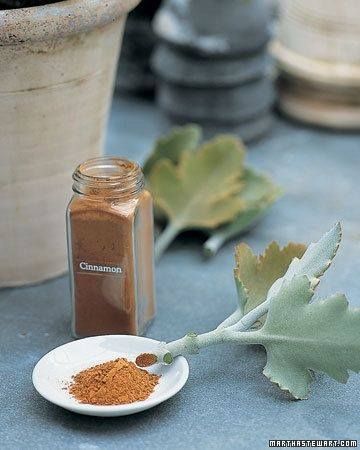
You decide to replant cuttings in your garden? Mould may develop. Fortunately, you can prevent mould from growing by putting a small amount of cinnamon in the soil in your garden. This spice acts as a hormone for the roots of cuttings. So it’s a natural way to fight mould.
19. A few flowers and plants to add to your garden
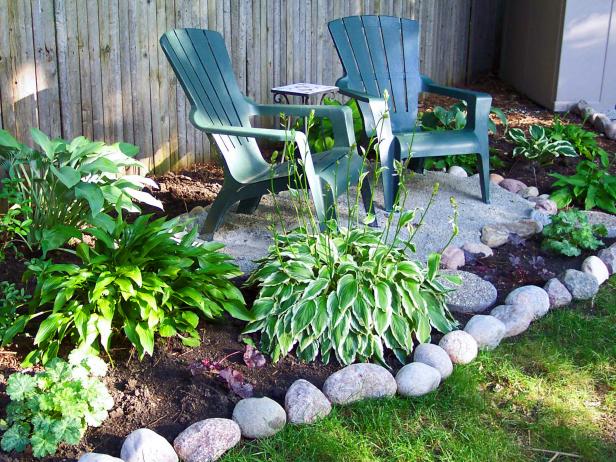
If you don’t have a green thumb, some species of flowers and plants are easier to grow. Here are some examples of plants to integrate into your garden:
- Sweet peas: Plant 4 or 5 of them, spacing them about 50 centimetres apart.
- Daisies: Sow in May on your property.
- Cosmos: Sow them around May.
- Phlox: Plant them in March, April or September.
- Morning glories: Sow 5 or 6 seeds at a distance of 50 centimetres apart.
- Hosta: This plant does not require much maintenance, sun or water.
18. Kill parasites with your coins
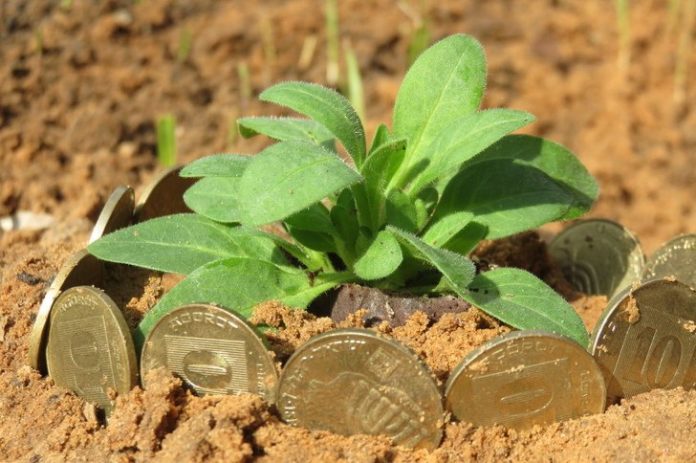
Surprisingly, you can keep snails and slugs far away from your garden with some coins from your wallet. To do this, stick some coins in your garden or you can also place some under your plants.
17. It helps tender roses tackle mildew

To keep roses fresh and healthy and to avoid mildew, spray them with this natural spray when needed:
Plant remedy with baking soda
- 7 tablespoons sodium bicarbonate;
- A small amount of insecticidal soap;
- 5 gallons of purified water.
Note: Make sure to look regularly for signs of burns. If there are no burn (some plants are very sensitive), the mix can be used securely once a week.
16. Boiling water
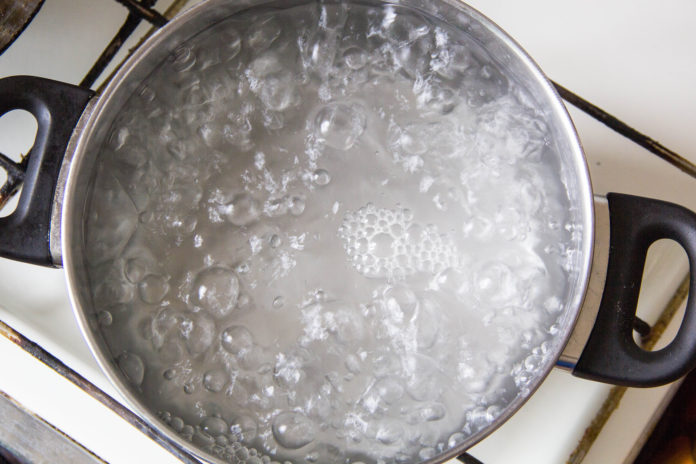
Pour a kettle filled with hot water or a pot with boiling water on the weeds, around the crown of the plant. This will destroy it for good.
15. Salt

To dehydrate weeds, sprinkle some salt on them. However, don’t use too much because this could harm your plants and the soil balance. You need to mix some salt with water in a 3:1 ratio and only pour this mixture into the weeds.
14. Detergent
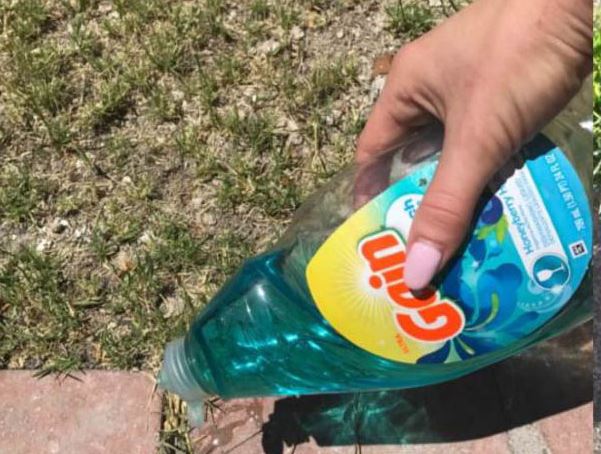
Mix 5 tablespoons liquid detergent with 4 cups water then pour the mixture into a spray bottle. Gently shake it and spray the weeds to eliminate them.
13. Ward off squirrels with plastic forks
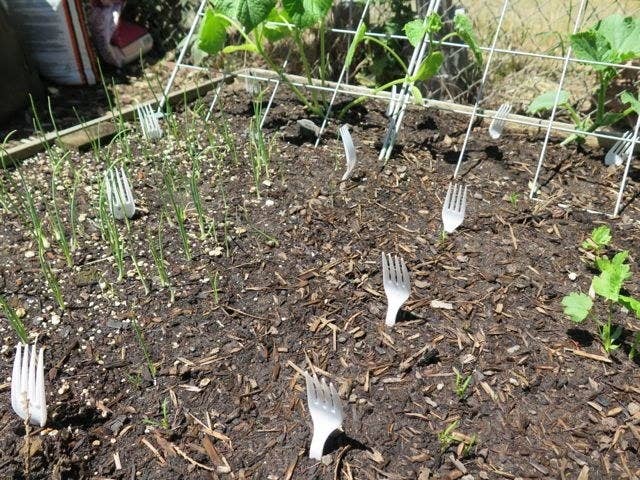
This trick is absolutely genius! Try!
12. Wine bottles to water the plants
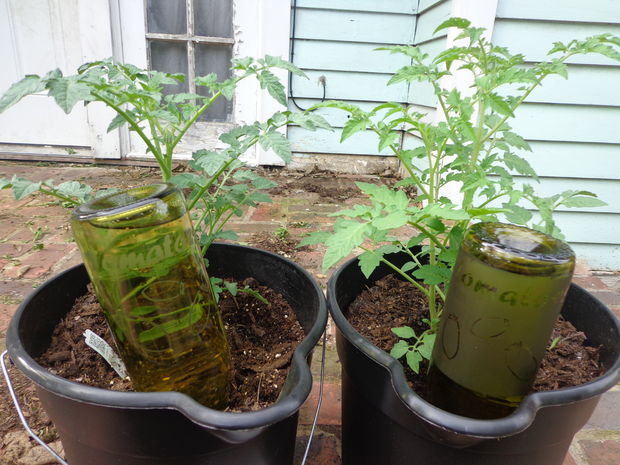
If you are looking for a way to water your plants without manually doing it, all you have to do is fill a wine bottle with water and place it in a pot filled with earth. The water will slowly empty out over time so you’ll never have to worry about your plants won’t have enough water.
11. Protection against frost
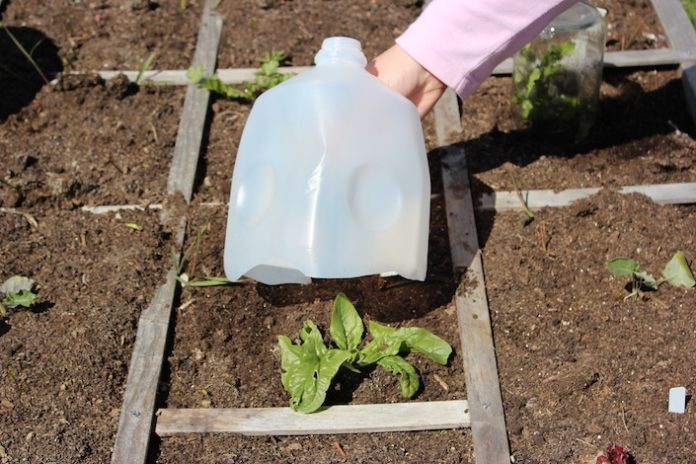
Cracks and night frost can kill your plants in a heartbeat. Thankfully, a milk jug can save them. All you need to do is cut the bottom of the large jug and place it over your most fragile plants. The plastic will help regulate their temperature.
10. Vodka
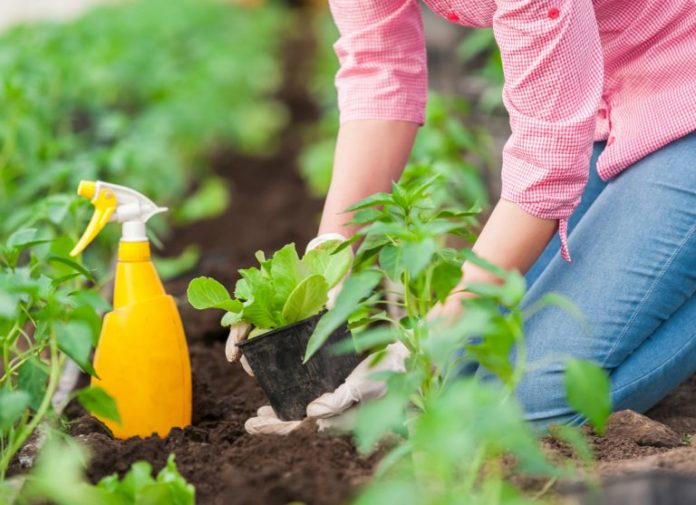
Hard alcohol and weeds aren’t a great combination:
- Mix 30 ml vodka with a few drops of liquid detergent and 2 cups water;
- Pour this mixture into a spray bottle and use it to tackle the weeds in your garden;
- The alcohol will dehydrate the plants and thus make them disappear.
9. Roses and potatoes united!
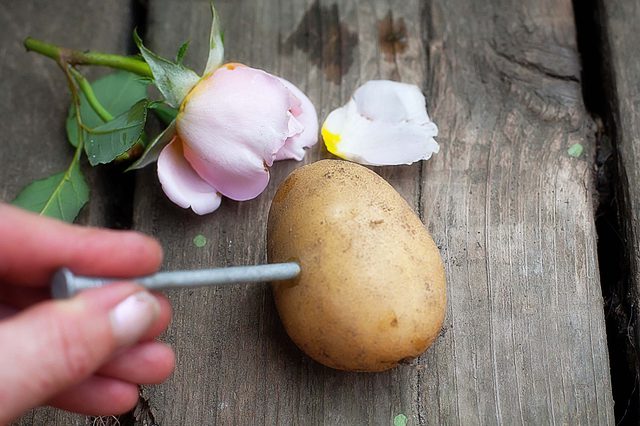
If you want your own rosebushes but you can’t afford to buy some, all you need to do is buy a few individual roses and cut an inch of the stem. Then, place the stem in a potato. Plant the potato, and, in a few months, you will have your own roses!
8. Biodegradable gardening
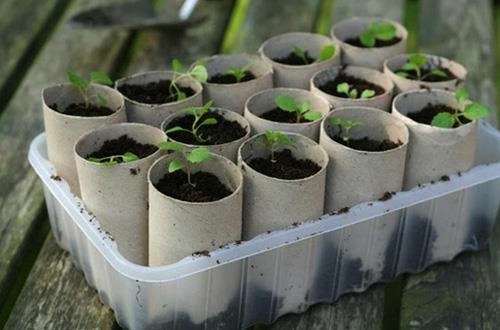
This hack is an excellent way to reuse your old toilet paper rolls and allows you to create little biodegradable planters for your seedlings. You can even plant the seedlings, in the homemade planters, directly in your garden and they will decompose themselves with time.
7. Avoid cutting the small branches from your plants
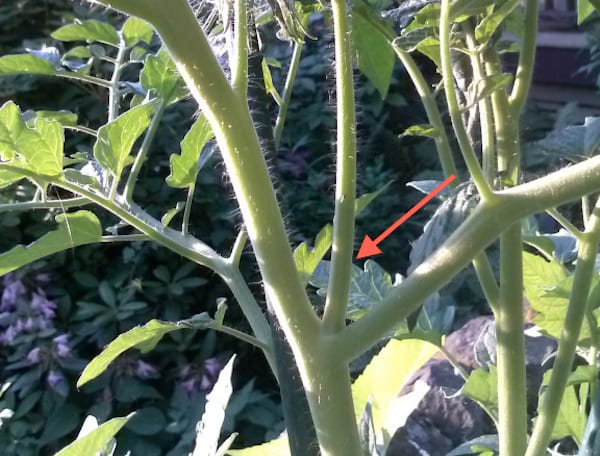
Many gardeners think that we need to remove the small branches from the tomato plants but this is not the case. In fact, by letting these stems grow, you will get flowers as well as fruit since these branches are actually secondary branches.
6. Help your plants grow

You can help your plants grow and keep them healthy by mixing 5 g of Epsom salt in a litre of water. In fact, this product is great because it acts as a natural fertilizer.
5. Epsom salt: a great alternative to fertilizer
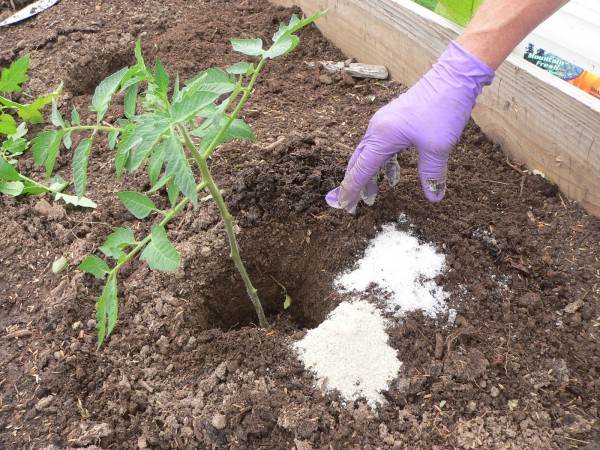
Since Epsom salt contains magnesium, you can use it as a natural fertilizer.
4. Irish Spring soap
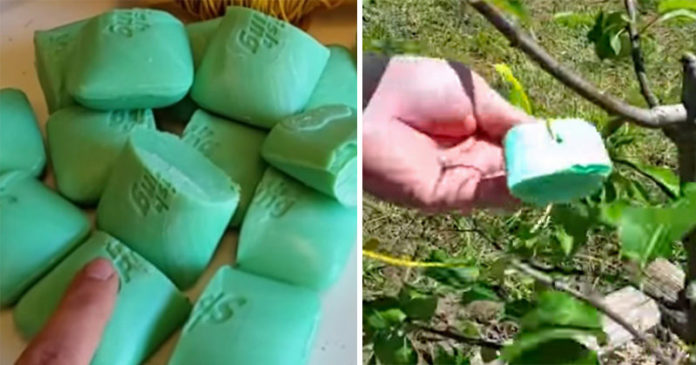
“Irish Spring” soap is perfect to ward off deer and rabbits from your garden. Cut the bars into pieces and place them in small bags that you tie tightly. Then, staple the bags on wooden pikes. After, plant the pikes in the ground, around your garden.
3. Baby powder
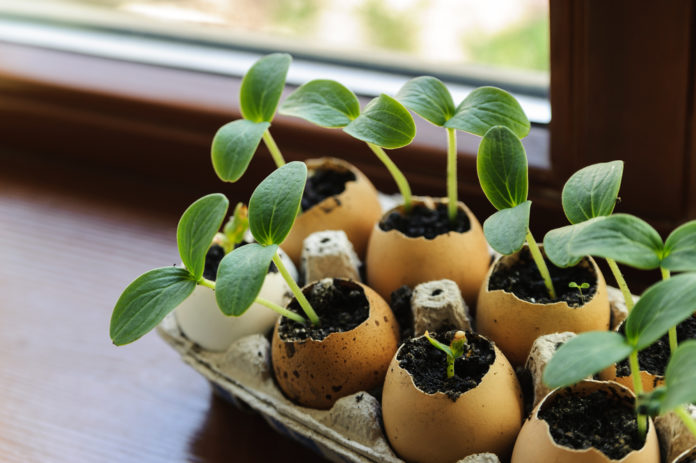
Baby powder is very practical when it comes time to eliminate different insects that destroy our garden every year. Whether it is to ward off ants, aphids, beetles and even small rodents, baby powder is the ideal product to use. All you need to do is sprinkle some around your garden and even on your plants.
2. Vegetable oil
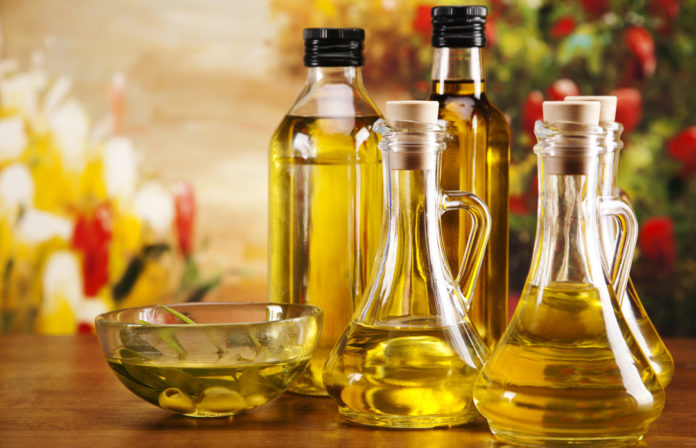
Vegetable oil, like sunflower oil or canola oil, is also a good and cheap way to help you eliminate weeds. In fact, vegetable oil has herbicide properties and natural pesticides. Also, it’s biodegradable and decayed by the bacteria present in the soil.
1. Rotate where you place your plants

Do you want to know the secret for your tomato plants to grow properly? The trick is to rotate where you plant your tomatoes every year. By doing this, you reduce the risks of your plants getting diseases transmitted by the earth (for example, mildew or brown spots).
Sources:
- Pratico-pratique
- Astucito
- Diet of Life
- Daily Holics


![[Photos] Why WD-40 Is Magic In Your Garden?](https://lifetonik.com/wp-content/uploads/sites/7/2019/08/WD40-Prices-Highres_Page_8_Image_0008-218x150.jpg)





![[Photos] Take A Look Of The Obama’s New Home Before It’s Banned](https://lifetonik.com/wp-content/uploads/sites/7/2019/07/Obama1-218x150.jpg)

![[Slideshow] Celebrity Homes: 21 Of The Most Luxurious](https://lifetonik.com/wp-content/uploads/sites/7/2019/07/Taylor-Swift-218x150.jpg)
![[Slideshow] More Parents Are Now Gluing Pennies to the Bottom of their Kid’s Shoes](https://lifetonik.com/wp-content/uploads/sites/7/2019/07/Keep-Them-Entertained-218x150.jpeg)
![[Photos] 20 Fashion Mistakes That Too Many Women Make!](https://lifetonik.com/wp-content/uploads/sites/7/2019/07/5-style-mistakes-that-make-you-look-frumpy-featured-218x150.jpg)










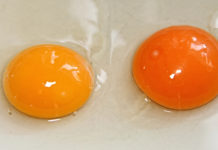








![[Gallery] 25 Discounts For Seniors To Which You Are Entitled Without Knowing It](https://lifetonik.com/wp-content/uploads/sites/7/2019/08/EAZxECUXUAAvNZR-218x150.jpg)
![[Slideshow] Here’s the salary of every governor in the United States](https://lifetonik.com/wp-content/uploads/sites/7/2019/08/Charlie-Baker-218x150.jpg)
![[Photos] No One Will Want To Buy This House After Seeing These Pictures](https://lifetonik.com/wp-content/uploads/sites/7/2019/08/terrible-real-estate-photos-2-5c35e727c9f95__700-218x150.jpg)



